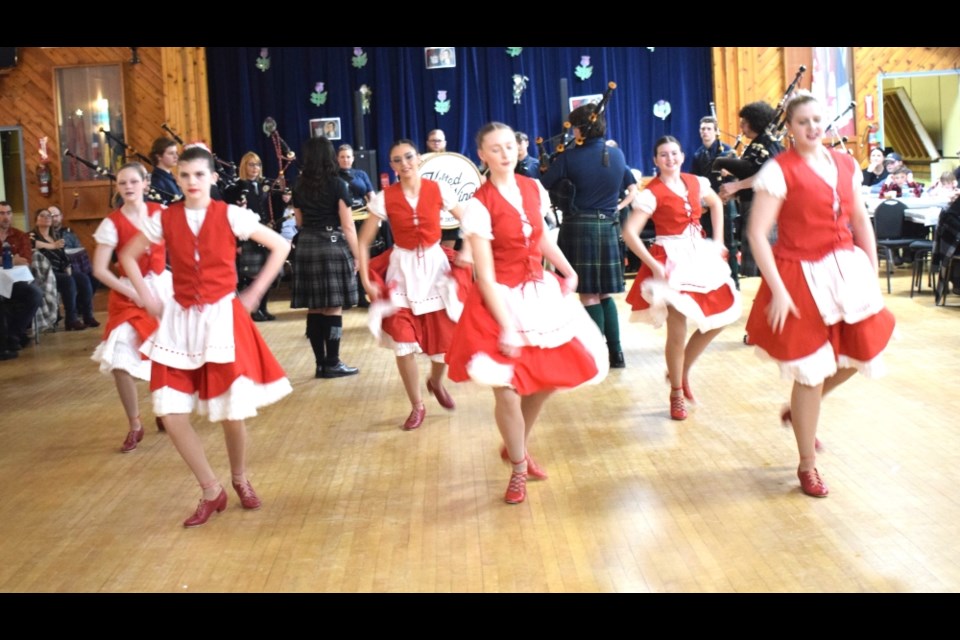ESTEVAN - A large crowd gathered at the Estevan branch of the Royal Canadian Legion on Saturday night for the annual Robert Burns Night, which celebrates the life of the famed poet and Scottish culture in general.
The event, hosted by the Estevan Pipes and Drumming School, featured the traditional elements of a Burns Night. Club members participated in the piping in of the haggis, and then Jacob Pyra delivered an address to the Scottish dish. Rachel Duncan delivered the Selkirk grace. Allan Mohrbutter was the event's MC. Many of the people in attendance sported traditional Scottish attire.
After supper, Dyana Drummelsmith shared the immortal memories of Robert Burns with the crowd. She noted it is observed on Jan. 25, the date of birth for the famed writer back in 1759, and is marked by traditional Scottish customs, poetry, music and meal. Estevan's Burns night is usually on the Saturday closest to Jan. 25.
She started by talking about Auld Lang Syne, which she said is a song people recognize without even knowing it, due to its popularity at New Year's Eve celebrations each year. Drummelsmith noted Burns sent a copy of the original song to the Scots Musical Museum in 1788 with the remark "The following song, an old song, of the olden times, and which has never been in print, nor even in manuscript until I took it down from an old man", said Drummelsmith.
The first recording of the song was made on wax cylinder in 1898.
Drummelsmith described Burns as a "very dedicated poet who preserved the tunes and words of the Scottish people that would have been lost."
"For those who met him, it was an extraordinary experience; he had such charisma that men and women were totally charmed," Drummelsmith said. "Within three months of his poems being published, he was the talk of Edinburgh society as a literary and social phenomenon."
The son of a father who was a peasant farmer and a mother who was a spinner and singer of old Scottish songs, Burns' first book of poetry, Chiefly in the Scottish Dialect, was released in 1786. In a reprint, Burns decided to add to the poems with several new works, including Address to a Haggis, which helped establish the food as a well-known part of Scottish cuisine.
Many of his poems depicted both the joys and the painful after-effects of drinking. Hypocrisy of one form or another became a major theme of his poetry. And he became known for his love of women. He also had 10 children and cared deeply for them all.
"In 10 years of publishing, he left us with over 500 poems and songs. Letters he wrote allow people to have a view of his life."
She hoped that people would enjoy the night and the birthday party "in good ol' Scottish fashion … with good friends, good drink and great entertainment, just like Robbie would have wanted it."
Burns died of rheumatic fever in 1796 at the age of 37. The first Burns night was held in 1801 on the fifth anniversary of his death; it is now held on or around his birthday at locations around the world.
Further entertainment took place after Drummelsmith's speech. The Kilted Wind Pipe and Drum Band performed 13 selections, and they were accompanied by members of the Drewitz School of Dance several times.
DJ Dave Elliott supplied music to conclude the event.




